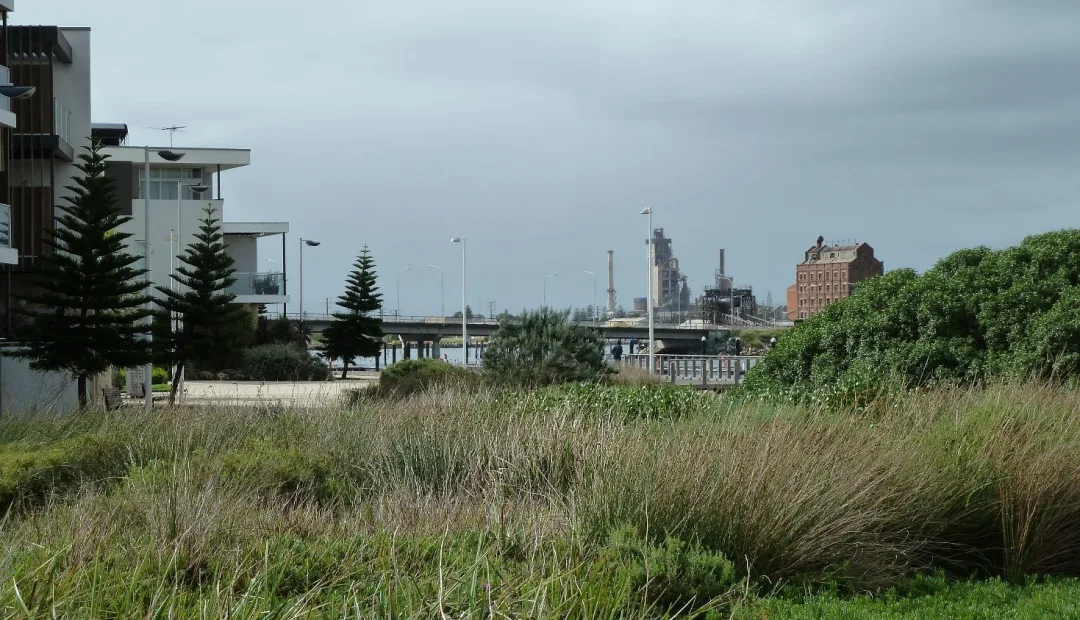Published:
Author:
Establishment of the Port Environmental Forum
The Port Environment Forum was established in 1992 in response to community concern about industrial pollution and its impact on nearby homes, schools and community. Originally set up with participation from residents, industry, and state and local governments, it aimed to encourage the discussion of the issues, and exploration of possible collaborative responses. In more recent years, the Forum has been directed by community members and hosted by City of Port Adelaide Enfield.
In April 2023, the Forum coordinated a workshop to look at the issues affecting Port Adelaide that could be included in the State of the Environment Report (SOER). The EPA was invited to be part of their consultation for the SOER. The workshop addressed the following questions:
1. What are the issues in our environment now and in the immediate future?
2. What are the existing local strengths or projects/approaches/actions?
3. What are the priorities for inclusion in the State of Environment Report 2023?
This case study summarises the Forum’s submission to the SOER as a way of giving an account of how it operates and aims to advocate for environmental improvement.
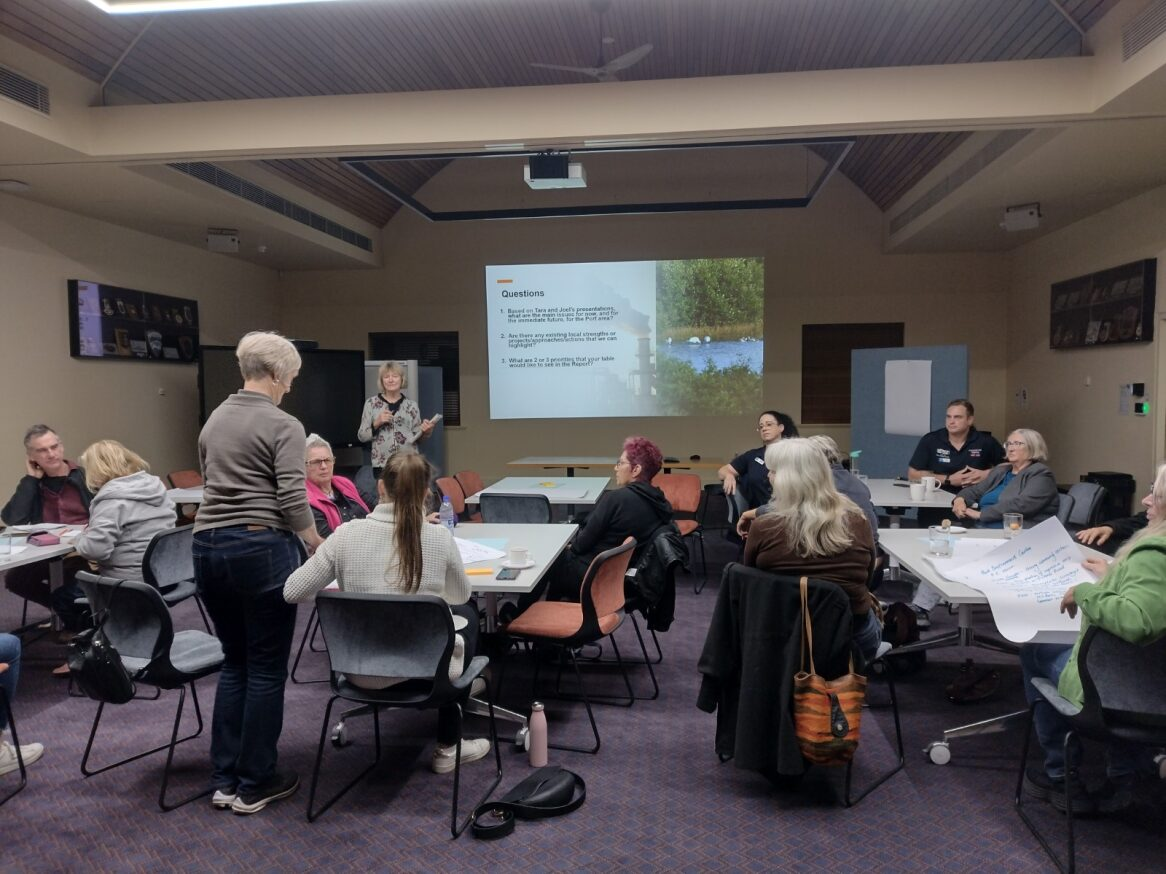
As with most marine ports across the globe, Port Adelaide experiences more environmental challenges with the interface between industry, residential and green space.
These include:
- Increased traffic from freight movements
- Continuous light, dust and noise pollution from industries
- Increased ship traffic which impacts on the coastline and Port River
- Pollution of land, water and air in conjunction with a lack of green space can lead to lower biodiversity in and around ports.
Over the years, the Forum has discussed all aspects of these issues, in addition to others that have been raised by the community.
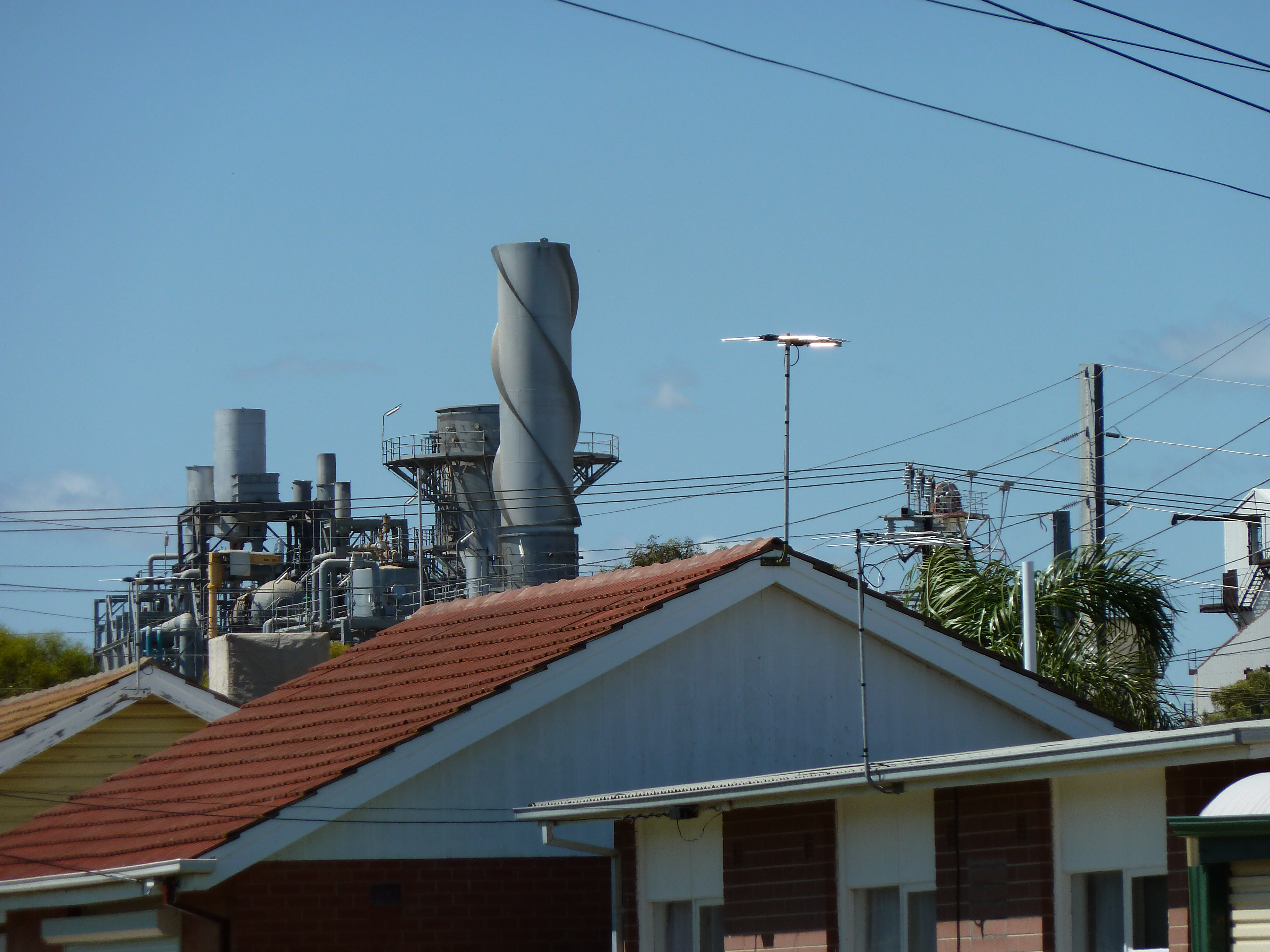
The workshop identified four main priorities for the Port in the next 5 years, with anticipation that progress with these will have a positive impact on the state of the environment in Port Adelaide.
1. Preservation and improvement of biodiversity, including:
- Protection and enhancement of biodiversity in Biodiversity Park.
- Retention of trees and encouraging further plantings.
- Protection of birds, mammals and lizards.
- Reducing the impact of waste, especially plastic and microplastics.
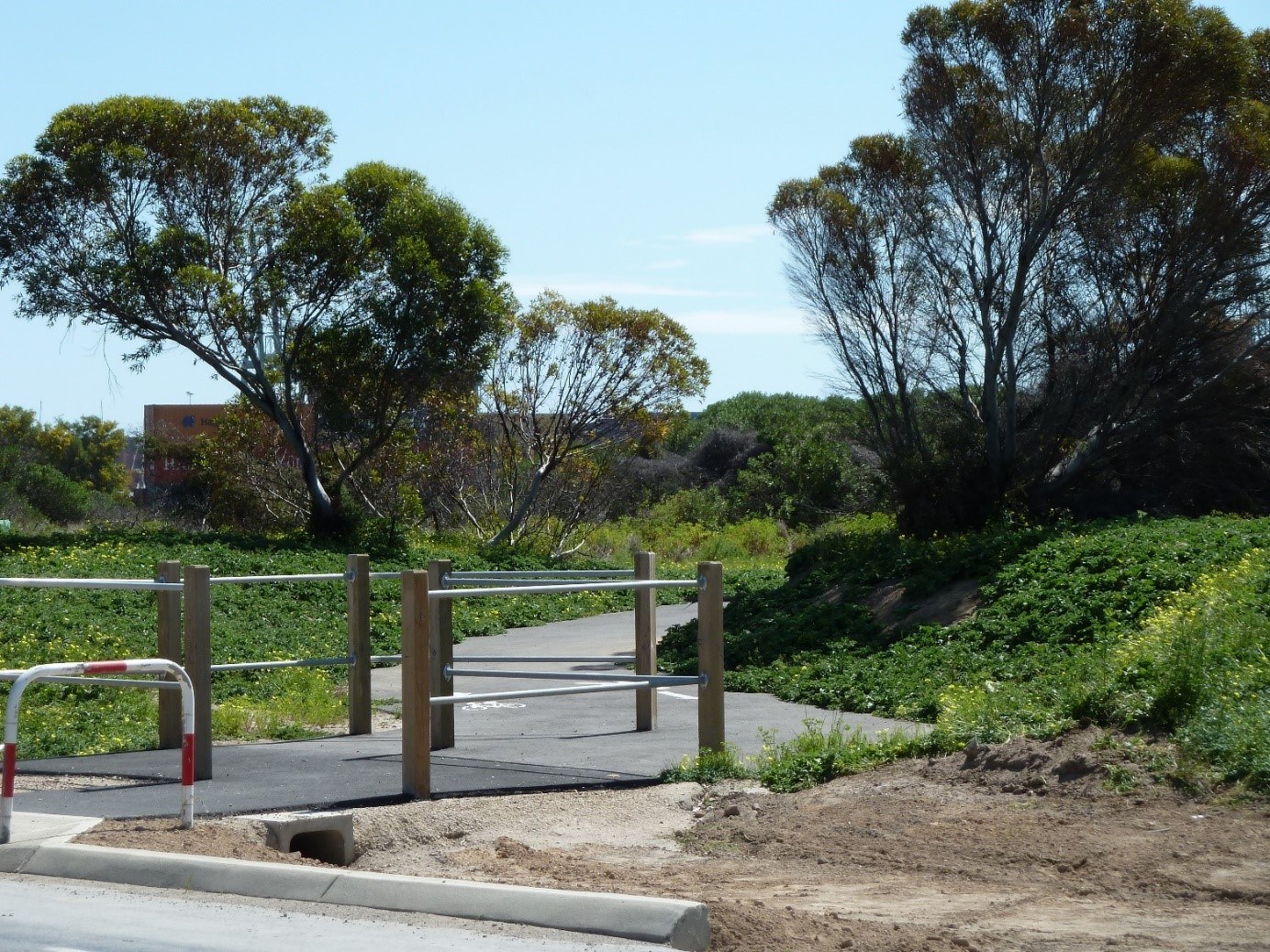
2. Protection of coastal reserves, beaches and Port River, including:
- Strategies to deal with sea-level rise and risks of flooding, eg eco-engineering responses.
- Protect marine life and shorebirds.
- Retain access to the Port River.
- Reduce impact of waste, especially plastic and microplastics.
- Implement strategies to manage storm water and water quality.
- Secure the future of beaches and dunes.
- Implementing living shorelines.
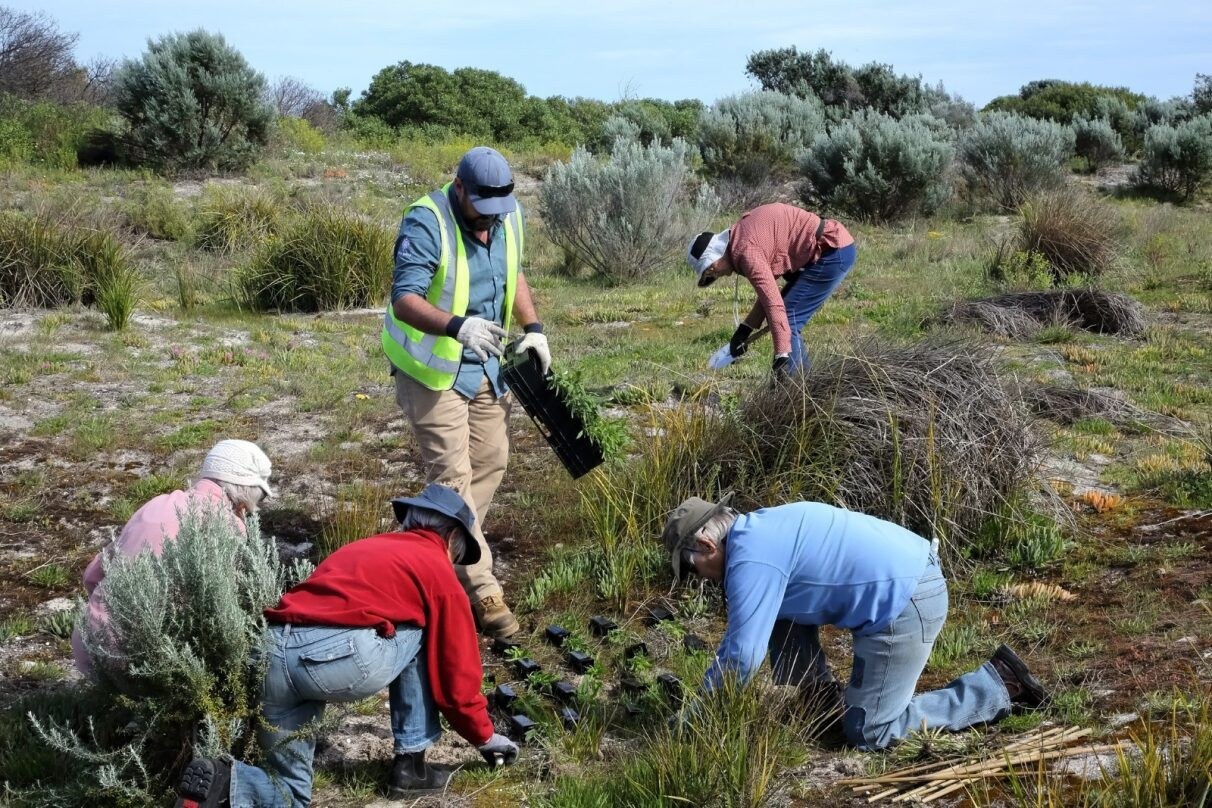
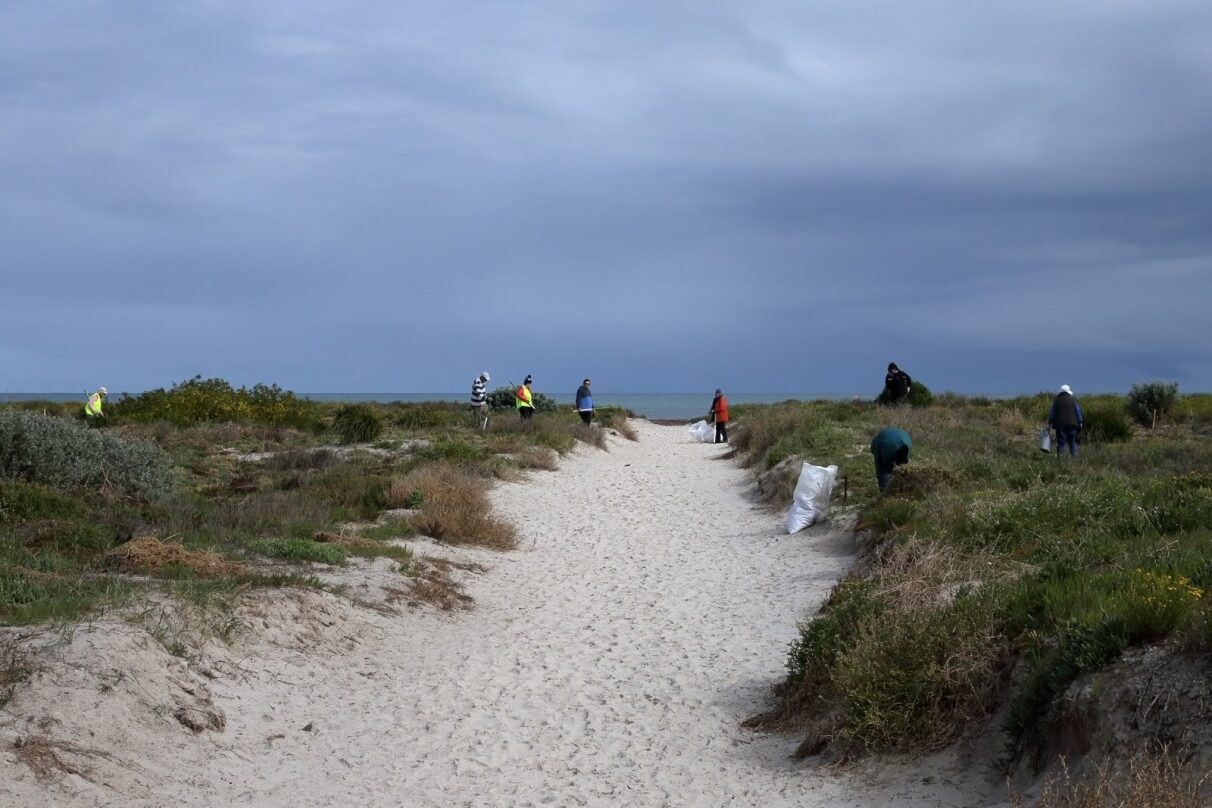
3. Impacts of the submarine base at Osborne, including
- Increase in traffic emissions on Victoria Road.
- Dredging.
- Noise.
- Nuclear storage issues.
- Limited public transport for work force.
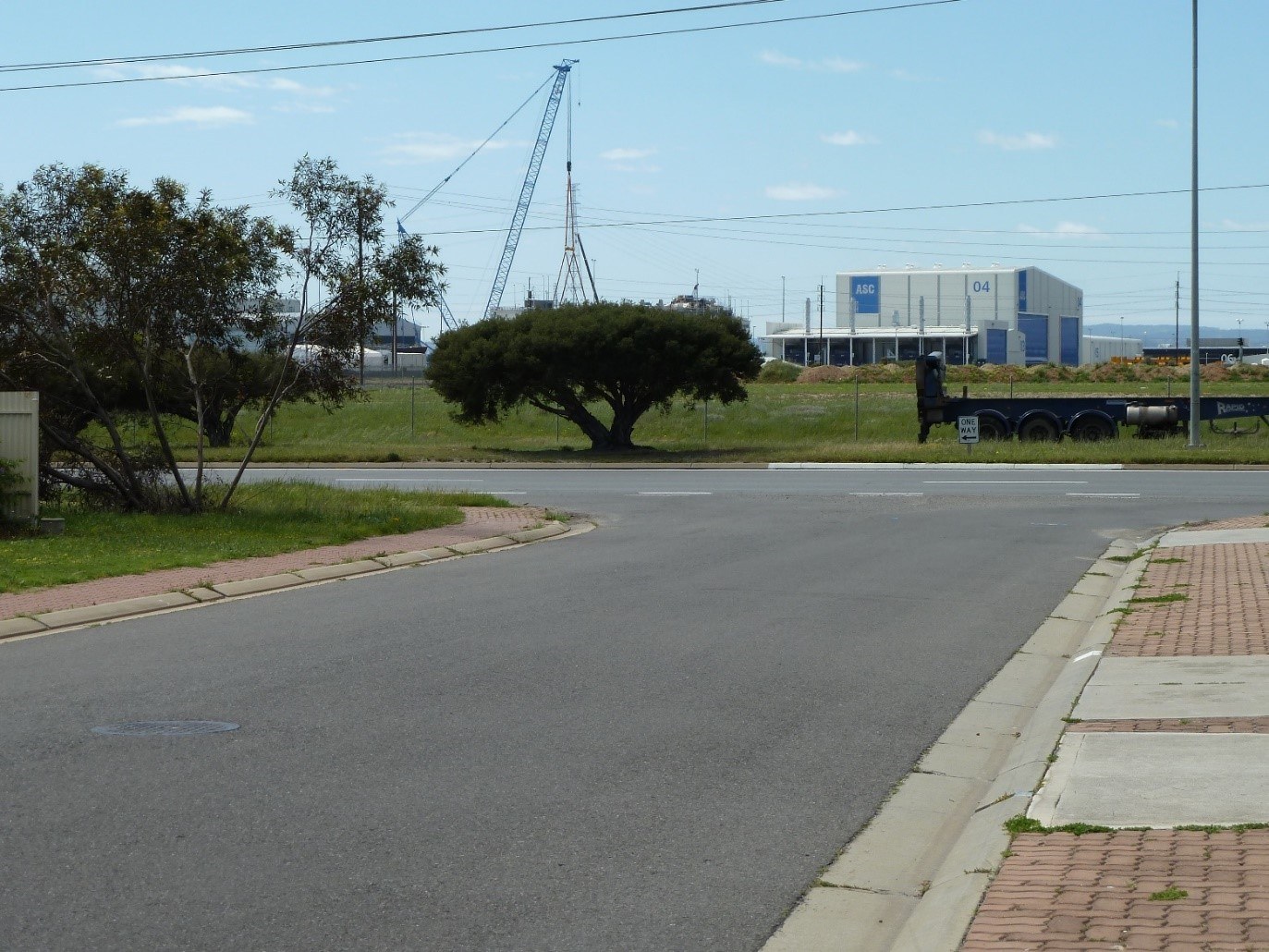
4. Air quality
Air quality in the Port Adelaide has been a long-standing issue. The EPA has done several monitoring projects in the area, and has two air monitoring stations in the Port Adelaide area, located at Birkenhead and North Haven.
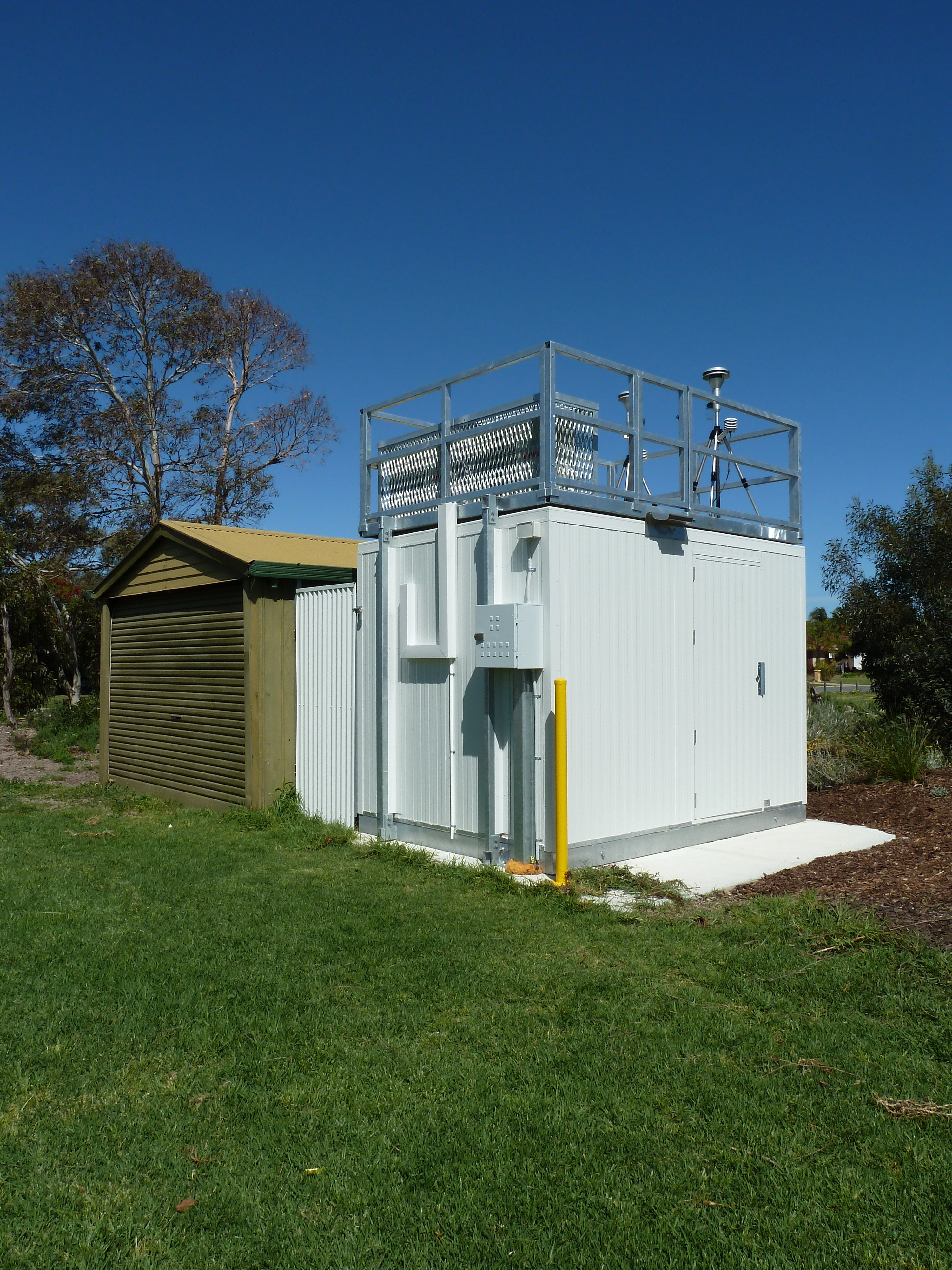
Participation
These are some of the things that the community ‘has going for it’, that can be utilised and built on as a part of addressing the issues. They cover community, and local and state governments. The value of citizen voices recognises a community with experience, knowledge and understanding of the issues and context.
A part of this context is the number of local groups that are concerned about the environmental health of the area:
- Port Adelaide Environment Forum
- Dunes Groups
- Port Adelaide Residents Environment Protection Group (PAREPG)
- Semaphore Compost Network and the recycling centre at St Bede’s Community Hall, Semaphore
- Estuary Care Foundation
- Port Environment Centre Inc (\managed and supported by Green Adelaide, City of PAE and Suzanne Elliot Trust)
Significant City of Port Adelaide Enfield (City of PAE) initiatives include:
- Yipti Yartapuultiku – the Aboriginal Cultural Centre being developed including use of living shorelines.
- City of PAE tree planting of impressive mix of native plants on Victoria Road.
- Multiple hard rubbish collections for residents which is not common across Adelaide to help reduce dumping that is problematic in the region.
- AUSMAP – microplastics surveys in local wetlands, in partnership with City of PAE.
Other significant initiatives are:
- Legislation by the SA Government to ban single use plastics was acknowledged as contributing to less plastic waste on our beaches.
- The proposed bio-link from Mutton Cove to the coast.
In addition, two government ‘tools’ were identified as potential enablers or barriers to a healthy environment. These are:
- Planning: laws and practices are needed that do not put further pressure on the environment, eg traffic and roads, housing infill and more sealed surfaces, storm water issues, loss of trees and access to public space.
- Monitoring: effective monitoring of air and water quality and noise pollution, and timely public access to the data.
The Forum contributes to positive outcomes through discussion, advocacy, information, highlighting issues and working in partnership. It does not have, within its remit, the means for addressing the issues.
It does have the experience and credentials to continue to raise them and bring together the experience of relevant people and organisations to advocate for changes.
The durability and longevity of the Forum is testament to the well-developed co-working between City of PAE and community.
At the end of each Forum, there is time for community announcements. This often revealed a crowded space of activities and events related to the environment, and the many players involved in this. The Forum continues to provide a place to bring them all together to push for a better environment.
